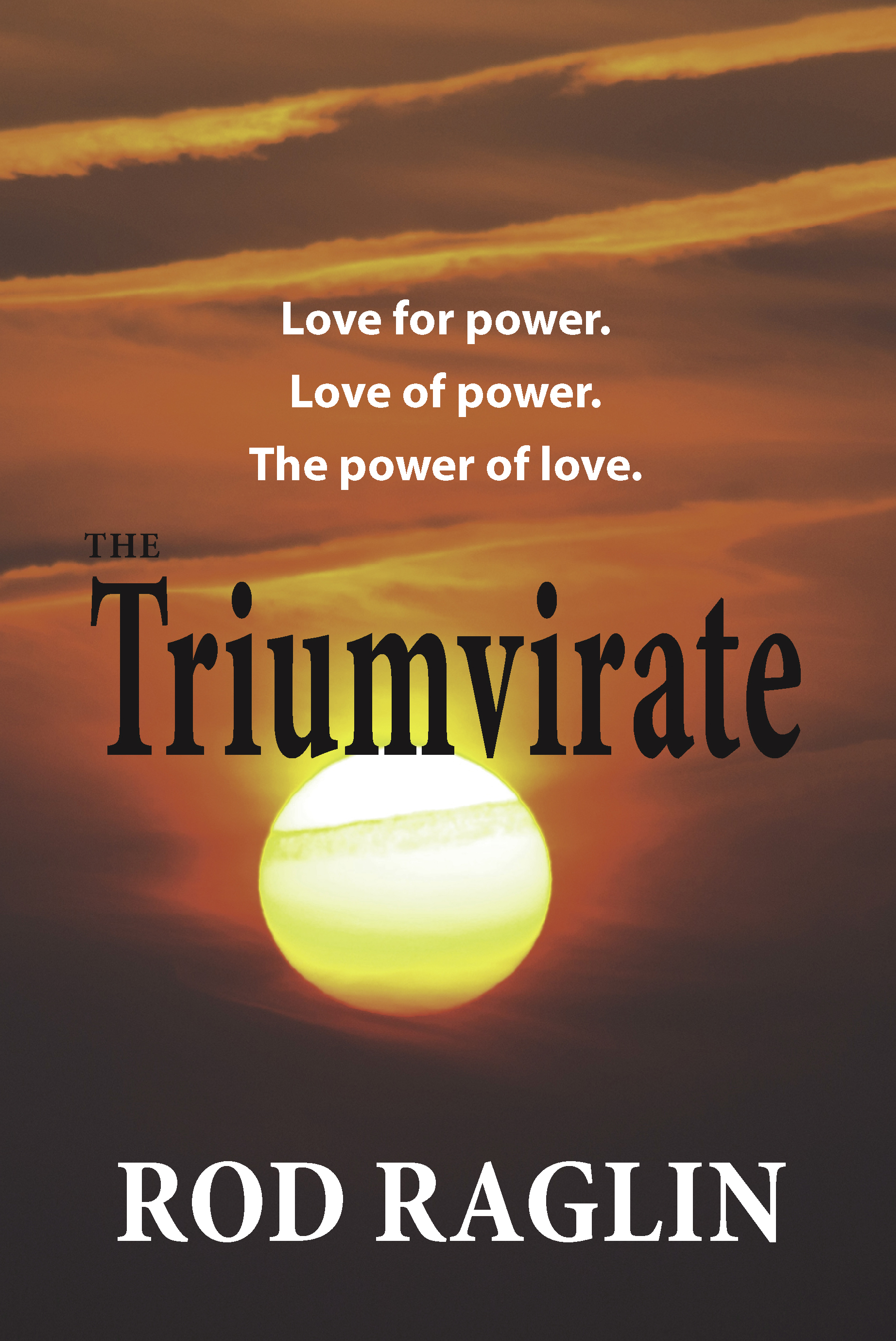99¢ BOOK OF THE WEEK
The TRIUMVIRATE - Love for Power, Love of Power, the Power of Love.
A story about love and loyalty, politics and power, sacrifice and survival
taken from tomorrow’s headlines.
Till Oct. 6 at https://www.amazon.com/-/e/B003DS6LEU

When terrorists kill Shyloh’s mother, he dedicates his life to making a better world. He recruits his childhood friends Aiya and Judith. With their intimate bond, exceptional talents and singular determination they become a formidable team.
He chose them, nurtured them, advised them, and, in no small way, is responsible for who and what they've become.
Judith, the warrior and pragmatist who believes in law and order, is the commander of the new country's military.
Aiya, the theologian and advocate for justice and morality, is leader of the Cascadia's largest faith-based organization.
In the past, when dissension, disagreement, and at times hostility threatened to destroy their triumvirate, Shyloh, the idealist and politician, was able to harness the heat and energy generated from this polarity and craft a consensus, identify a goal, and create a process to get there. Together they’ve been responsible for Cascadia’s survival amid the chaos and carnage that accompanied the collapse of civilization.
But now, negotiating this dichotomy of will and passion is like being between two powerful magnets, crushed when as opposite poles they collide, and at risk of disintegrating when as similar ones they repulse each other.
The unraveling of civilization caused by climate change has brought unique challenges. For each of them the goal has begun to take on different meaning. In the end, there can only be one better world, but whose will be best?
...a GREAT choice for a bookclub to read and discuss.
"This book traces Shyloh's efforts to make a better world of our present social, economic, and environmental crisis through creating a team of three unbiased leaders (The Triumvirate). The problems they address are real and will be known to the reader. They are today's headlines and, being unbiased, these three are revolutionaries in their own time. It is fast paced, a good story, and an easy read.
- Clark Wilkins, Author of A Compelling Unknown Force
If you enjoy fiction/sci-fi, climate change and politics this could be a book for you.
I enjoyed the futuristic portrayals of Canada because of the connection with the many pressing social issues in our country's politics.
Touches on many divisive social issues of today (immigration, virus, climatechange, federal/provincial strain) and provides a unique perspective. The take on the Canadian confederation was particularly interesting to me because of the current issues in Alberta.
- Tom Urac, Author of Spartan Revolt
"...unflinchingly stares down some of today's most contentious issues, whether they are of a socioeconomic, environmental, racial, or political nature.
"...sure to spark discussion amongst intellectuals and casual readers alike, ... highly recommend it as a selection for a reading group.
-- Jonathan Walter, Contributing author to THE DEVIL'S DOORBELL, GHOSTLIGHT, and DARK DOSSIER anthologies; and columnist for UXmatters Web magazine
CLICK HERE TO WATCH THE VIDEO TRAILER

 Log in with Facebook
Log in with Facebook 










